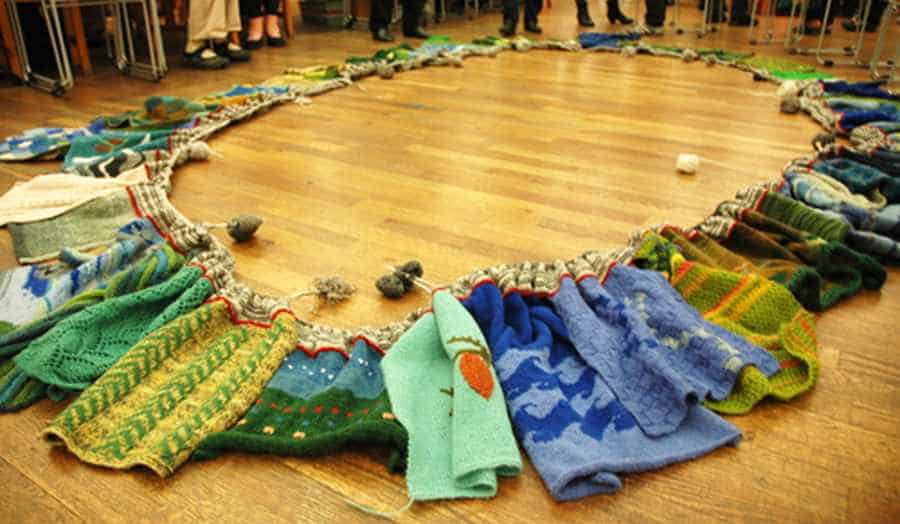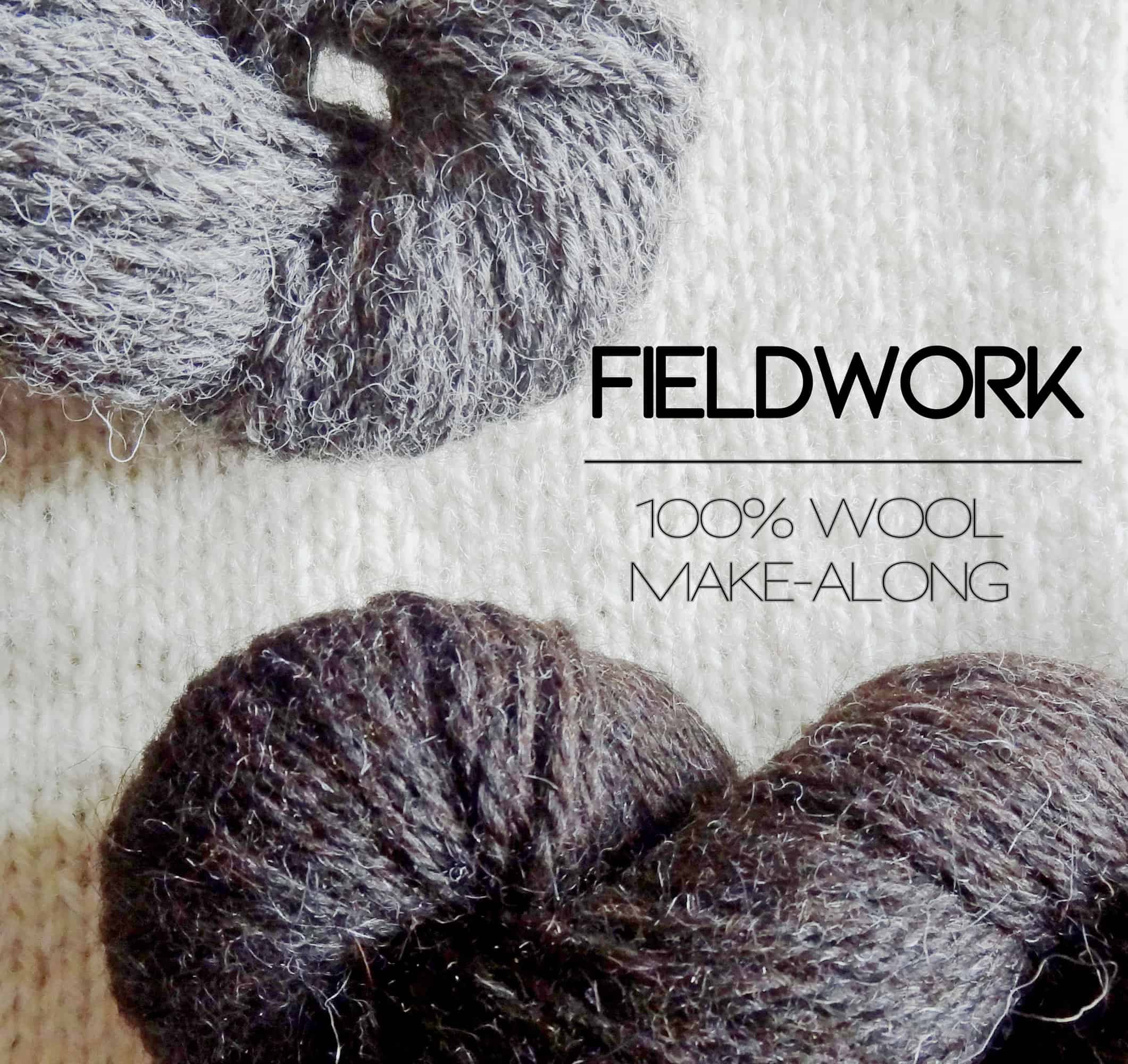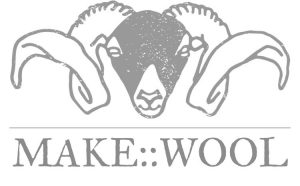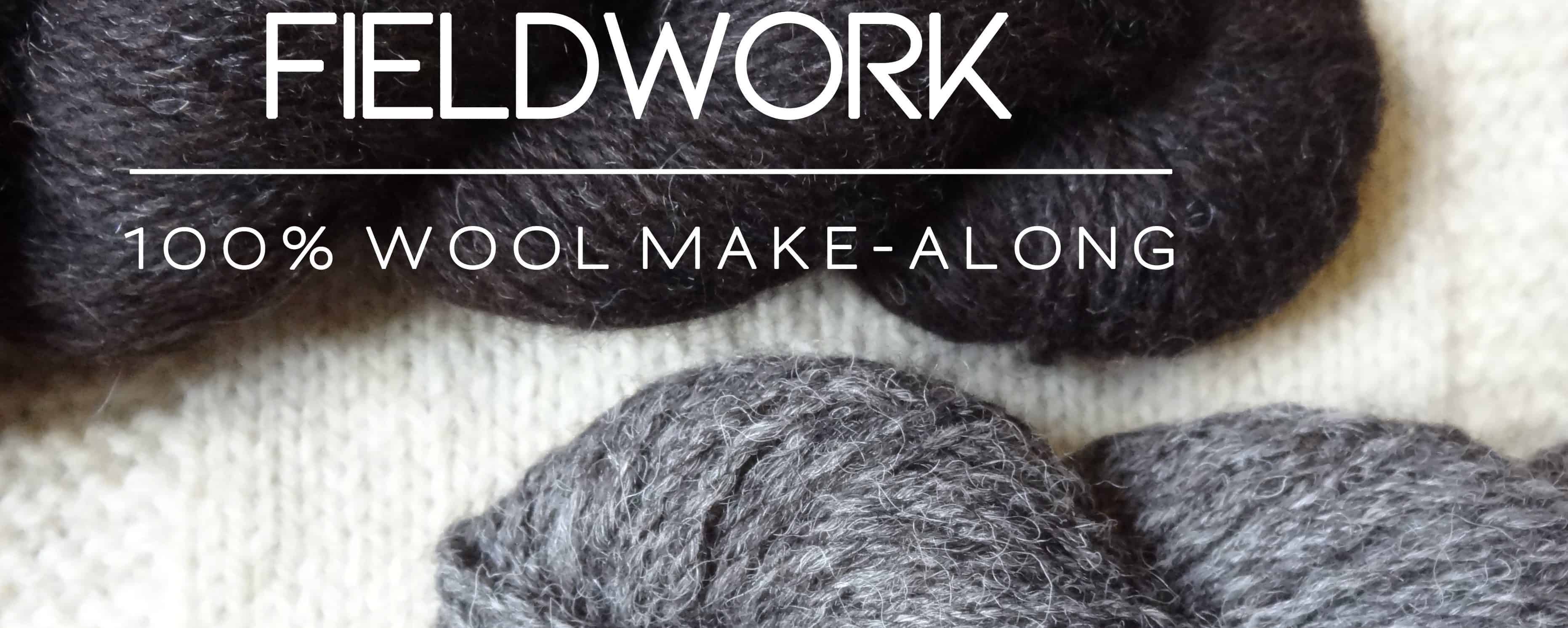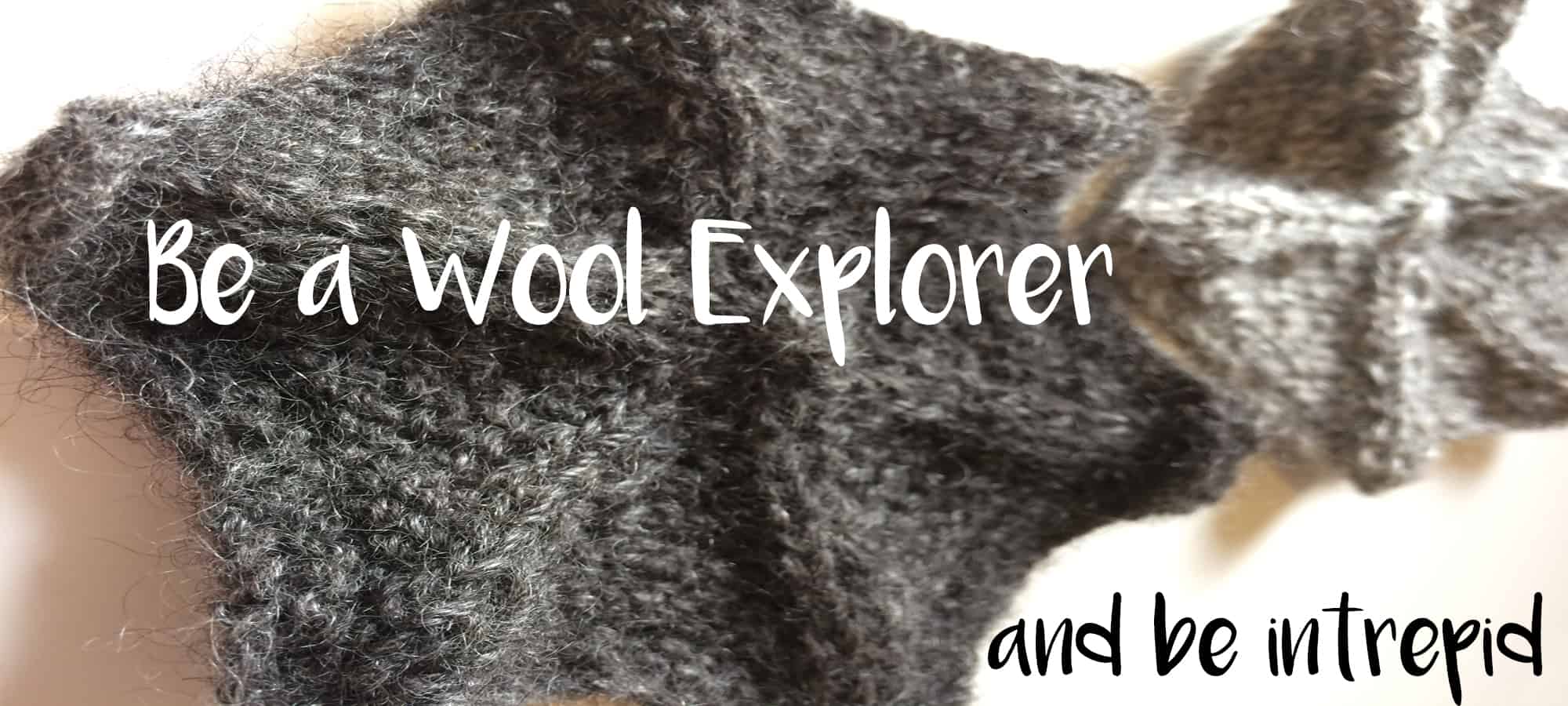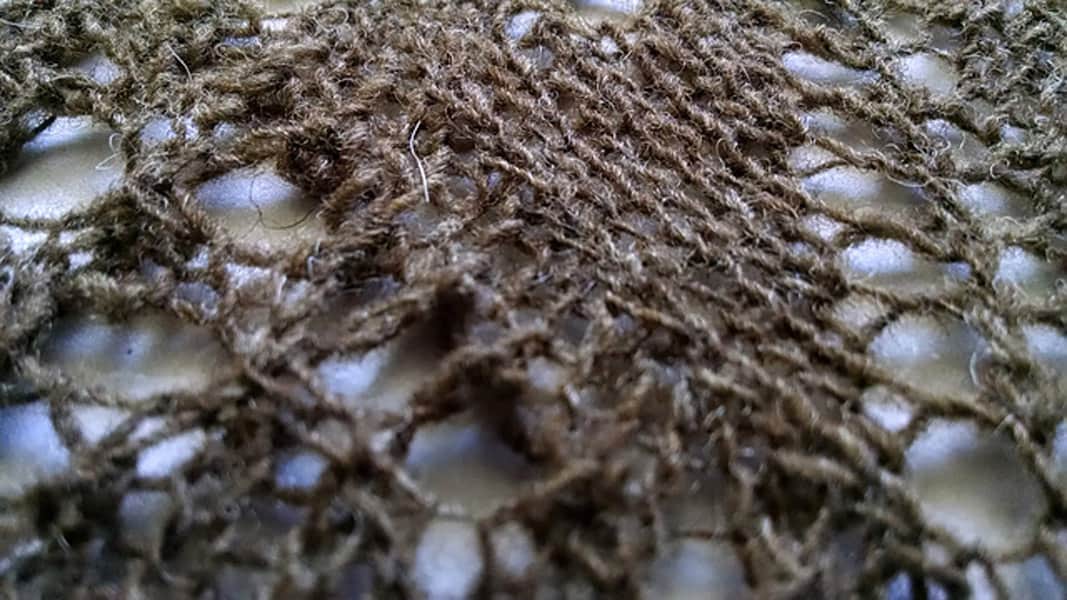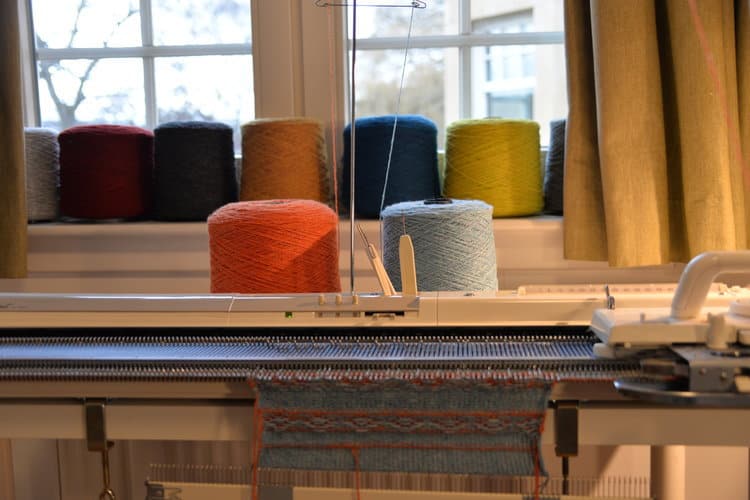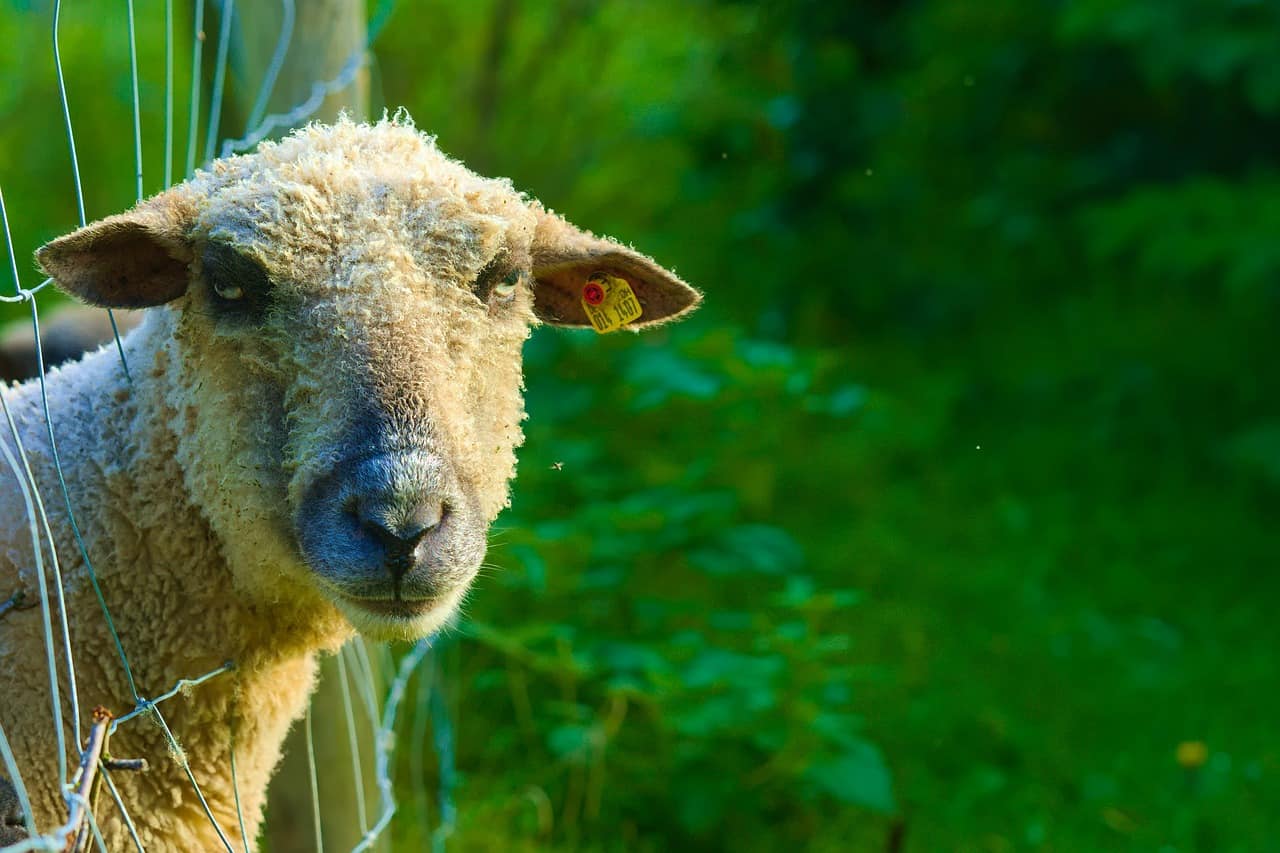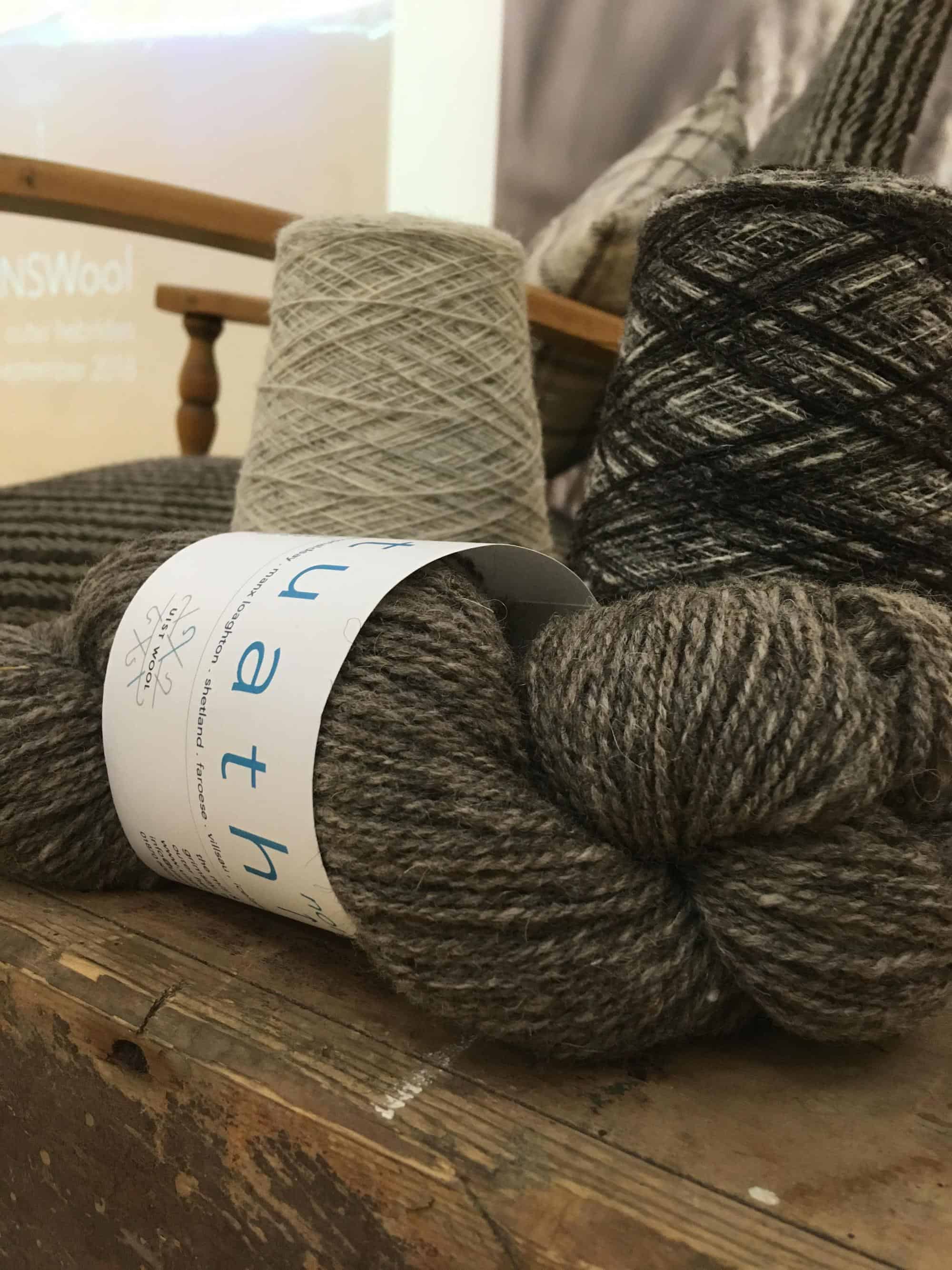The above image is (c) Kerstin Lindström and is part of her art project “Own our own time” and “Uplift” which speak of the human pace. The art work has travelled widely and sees knitter’s unite to knit in a circle. I saw this at SWW a few years ago and it was very powerful. Please visit Kerstin’s website knittingincircle.blogspot.com
Latest Posts
Fieldwork MAL – A Few Woolly Vendors
I’m just emerging after a week away in Shetland, but it is so lovely to see so many people taking part in our Fieldwork make-along, which celebrates 100% wool from vendors at this year’s Edinburgh Yarn Festival. (21st-23rd March). We cast on yesterday and we are making right up until 17th March.
You can read a bit more about this make-along in this post – knitbritish.net/fieldwork.
It may be that you are wishing to join in, but need a little titivating with wool suggestions so I thought I would pop in with a few for you.
If you don’t need suggestions and you just want to browse your stash for yarn sellers which qualify, you can peruse the exhibitor list over at edinyarnfest.com and also check out the wool exhibitors for the Make:Wool event on Sunday, 24th March . Then jump on over to our Fieldwork thread in Ravelry group and start chatting.
| A few suggestions Read More
Fieldwork
AROOGA! AROOGA! AROOGA! That’s your make-along klaxon, my friends!
As you know, I’ve stood down from my Podcast Lounge hosting job, at Edinburgh Yarn Festival BUT I’m still totally up for a KAL for EYF, if you are?
In previous years there was a PodKAL, which was held in conjunction with the Podcast Lounge sponsors and it was a lovely way to bring together those of us who were going to Edinburgh Yarn Festival and those of us who were watching events from afar. I think that was what was loveliest about that KAL – knitting that time together towards the date on the calendar with like-minded chums.
This year I’ve called it Fieldwork and the focus is on 100% wool. Read More
What is Wool Exploration?
This is a short-ish episode for those new to Wool Exploration, or need a reminder about our approaches to the exploration challenge. (I realise I sound a bit sedate in this at the start – its cos I had to re-record this due to tech fail!)
In 2019 we are continuing to explore breed wool together and every other month we will be looking at the following breeds.
January – Shetland
March – Cheviot
May – Wensleydale
July – Castlemilk Moorit
September – Norfolk Horn
November – Welsh Mountain Breed Group
| What is Wool Exploration?
In a tiny wool nutshell, we look at sheep breeds in yarn form by swatching and we all follow the same fieldwork notes to create a joint learning experience. The results of this I collate for the podcast so that others can learn about breed wool from our exploration. Read More
Episode 112 – What’s the name of that yarn, Louise?
[top image: close up lace swatch by drygardening] Read More
Episode 111: Machine Knitting Demystified
Welcome back to the podcast. Today we have an interview and deep-dive into the world of machine knitting, with Mica Koelhmos.
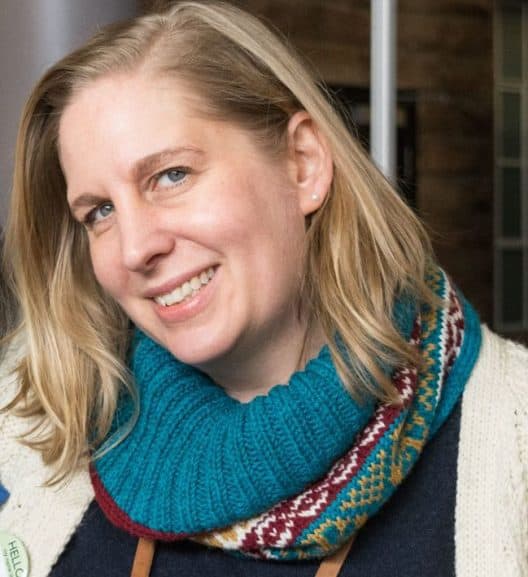
Image: Jeni Reid / Edinburgh Yarn Festival
Many of you will know Mica as one half of the duo behind Edinburgh Yarn Festival , but did you also know she is also really lit up about knitting machines and what you can make with them?
↓Listen to the podcast↓
You can also listen on iTunes, the podcast app, or search your favourite podcatcher, if you prefer!
The first I knew about Mica starting to machine knit was when she gave me a lovely dog-tooth Fair Isle cowl that she had made and she told me about her growing collection of machines! Skip forward and last year she attended a summer school at Heriot Watt University. I think that is when my friend became truly enthusiastic about creating fabric and designs on a machine and also wanting more people to know about it! Read More
Inflamed about wool?
I was both amused and frustrated to read the wonderful Louise Tilbrook’s latest blog post, On Wool – And Other Thoughts.
Louise is hosting a KAL, which is just one online, community event which is carrying forward the Wovember torch this year. You may have read that the Wovember blog is not continuing, but Team Wovember truly believe that #Wovember can continue on social media, and in the wool-loving community in the form of KALs and other events.
Louise’s #WinterWoolKAL is running for the month of November and as long as you are using 100% wool, you can join in and knit anything. Using 100% wool is totally alligned with the aims of Wovember, to promote and recognise wool, sheep and wool work and creatively pushing that the term “wool” is only applied to fibre from actual sheep. (all wool is yarn, but not all yarn is wool!) – WONDERFUL! YAY, LOUISE! Thank you!
My amusement and then frustration came when I read this paragraph in Louise’s blog.
“It was a bit of a surprise then to be greeted with, what a friend laughingly termed a ‘wool backlash’. I received a steady stream of emails, PMs and messages suggesting that my focus on 100% wool (the original Wovember principles) was somehow elitist and risked alienating a large number of knitters.”
(Perhaps a strong dose of the Wovember back catalogue is the best medicine for this malady?)
Alas! I am not surprised. I’ve also been criticised for talking about wool and that apparently talking about 100% wool, grown, spun or dyed locally is somehow (SOMEHOW) a bad thing. Read More
Episode 110 – North Atlantic Sheep and Wool Conference
Welcome to this special episode of the podcast, which focuses on the North Atlantic Sheep and Wool Conference, which I attended in Uist, in September.
↓Listen to the podcast↓
You can also listen on iTunes, the podcast app, or search your favourite podcatcher, if you prefer!
The North Atlantic Sheep and Wool (NANSW) conference was founded in 2011 by Karin Flatøy Svarstad, a felt artist and self-confessed “woolly lady”, from Norway. Karin wanted to put focus on the native wool in Norway, which was seen as worthless and which was being disposed of, rather than used. Karin saw that areas of the North Atlantic were seeing similar issues with their primitive or native breeds; sheep which she calls “viking” and which are part of the Northern European Short-Tailed group. Read More

